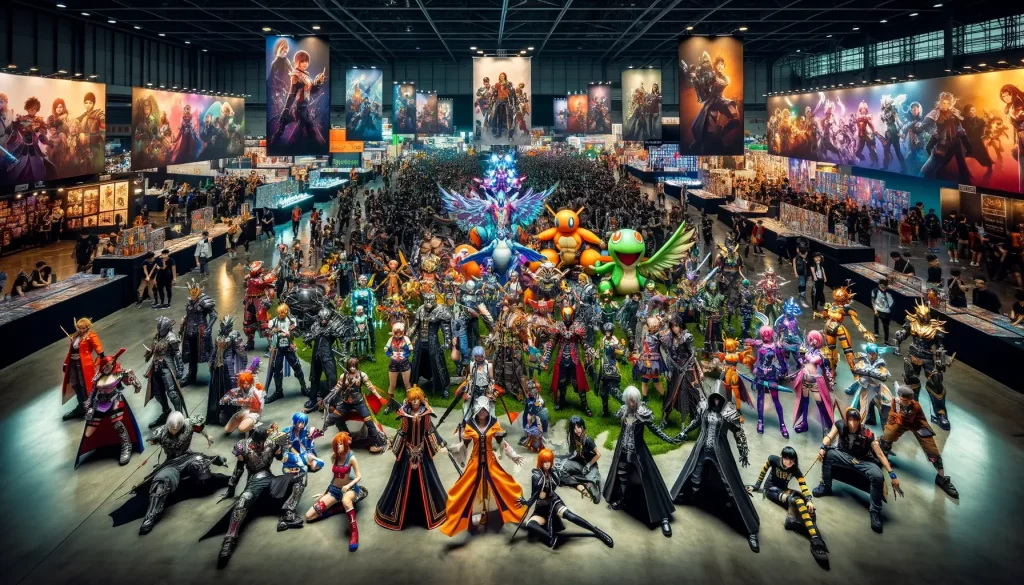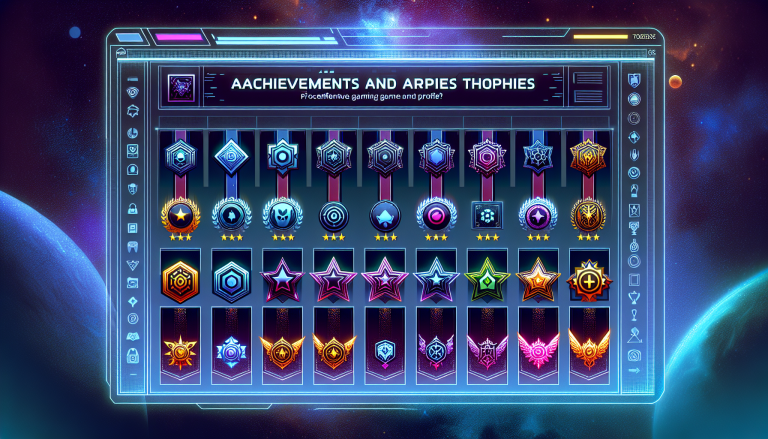Emotional Connection and Impact of Game Endings
There’s something special about the way a well-crafted video game can pull at your heartstrings. The feeling of your pulse quickening as you near the final boss, the ache in your chest when a beloved character faces tragedy, or the profound satisfaction of seeing an epic story reach its triumphant end. Game endings can incite a whirlwind of emotions, and they play a pivotal role in the overall gaming experience.
When executed perfectly, they leave a lasting impact, imprinting the essence of the game in your memory for years to come. Just think back on the games you’ve played, and it’s likely the endings of your favourite ones that you remember most vividly.
The Powerful Impact of Emotion in Gaming
Emotional engagement is a critical aspect of any storytelling medium, and video games are no exception to this rule. In fact, video games might have the upper hand in this regard, given they’re able to provide a level of interactivity and immersion that few other mediums can match.
- Immersion: Video games provide an immersive world for players, allowing them to fully engage with the game’s characters and story. This deep immersion in the game world makes the emotional impact of the game endings even more profound.
- Interactivity: Unlike other mediums, video games allow players to actively influence the game’s story. This sense of agency amplifies the emotional connection to the game, making the ending even more impactful.
These two elements combine to create unforgettable endings that resonate with players on an emotional level.
How Emotional Connections Influence Game Endings
Developers invest countless hours in creating compelling characters, gripping storylines, and dynamic game worlds. However, all these elements would be in vain if they didn’t culminate in a game ending that effectively resonates with the player emotionally.
But how do game endings create an emotional impact? The answer lies in the journey. A game’s ending is often a reflection of the player’s journey through the game world – the challenges faced, the bonds formed with characters, the triumphs, and the failures. When the player is emotionally invested in this journey, the game ending becomes a climactic release of all the emotions built up throughout the game.
In essence, a good game ending needs to feel like a natural conclusion to the player’s journey, tying up loose ends and providing closure to the story. When this is achieved, the player is left with a profound sense of satisfaction and a lasting emotional connection to the game.
So the next time you reach the end of a game, take a moment to reflect on how the ending made you feel. Chances are, if the game did its job right, you’ll be left with a strong emotional connection that will stay with you long after you’ve put the controller down.
Player’s Role in Shaping Game Endings: A Perspective
So, you’ve been grinding away at your favorite game for countless hours, deeply invested in the narrative, characters, and gameplay mechanics. You’ve journeyed through treacherous lands, battled countless foes, and solved intricate puzzles. Now, the end game is in sight. But, what if I told you that the ending isn’t set in stone? That’s right, you, the player, might have a significant role in shaping how the story concludes. Exciting, isn’t it?
Nowadays, many developers are incorporating multiple endings in their games, providing players with the agency to steer the narrative. This isn’t a new phenomenon, but it’s becoming more prevalent and sophisticated. An excellent example would be “Mass Effect,” where your decisions throughout the game have ripple effects, influencing the final outcome.
Choose Your Own Adventure
It’s like having a ‘choose your own adventure’ book, where the ending isn’t pre-determined, but is a direct result of your choices. This concept also heavily leans into the idea of player agency, giving you more control and making your actions feel more consequential.
The power of decision-making is, indeed, a double-edged sword. It’s thrilling to have control, but it also comes with a unique kind of pressure. After all, it’s not just about winning or losing; it’s about the story you want to tell.
Unpredictability and Replayability
Another exciting aspect of multiple game endings is the element of unpredictability. You may think you’re steering the game towards a particular ending, but a plot twist may throw you off course. The uncertainty adds a layer of suspense and intrigue that keeps you hooked.
- Replayability is another significant factor. With multiple endings, you’re likely to replay the game, experimenting with different choices to explore all possible outcomes. This greatly extends the lifespan of the game, giving you more bang for your buck.
Importance of Player Choices
Despite the excitement, there’s a pitfall to beware of. Player choices must feel meaningful, not just illusory. A game that promises multiple endings but provides superficial choices can leave players feeling cheated. It’s crucial for game developers to ensure that player decisions truly matter and lead to distinct endings.
Remember, as a player, your voice matters. If a game offers multiple endings, don’t be afraid to explore, experiment, and, most importantly, enjoy the journey. You’re not merely a passive consumer, but an active participant in the narrative. Happy gaming!
Influence of Game Endings on Player Satisfaction and Retention
As a passionate gamer, you’ve probably experienced the rush of satisfaction that comes from reaching the end of a game. You’ve battled through countless antagonist, solved mind-boggling puzzles, and traversed through various worlds, all to reach that moment of conclusion. But have you ever wondered how the ending of a game can influence your feelings about the entire gaming experience? Let’s dive into this subject and explore the significant role of game endings in player satisfaction and retention.
Endings: The Ultimate Payoff
Game endings serve as the ultimate payoff for the time and effort invested by players. A well-thought-out, engaging ending can leave a long-lasting positive impression on the player, making the entire gaming experience more fulfilling. On the contrary, an abrupt or poorly executed ending can shatter that built-up anticipation, leading to dissatisfaction.
Affect on Player Retention
Interestingly, game endings also play a critical role in player retention. A game with a satisfying conclusion encourages players to revisit the game, explore different pathways, or indulge in its sequel. It creates a sense of attachment, an emotional bond that keeps the players coming for more. However, a disappointing conclusion can have the opposite effect, causing the player to abandon the game entirely or switch to different titles.
It’s therefore crucial for game developers to strike the right balance in crafting their game endings. They should aim for a conclusion that not only wraps up the narrative effectively but also leaves the player wanting more.
The Balance of Satisfaction and Anticipation
- Satisfaction: A good ending should bring a sense of satisfaction. It should effectively tie up loose ends, resolve conflicts, and provide a sense of closure. This is vital in making the player feel that their time and effort was worth it.
- Anticipation: At the same time, game endings should also create a sense of anticipation for future installments in the franchise. This keeps the player engaged with the game even after completion, contributing to a higher retention rate.
So, the next time you reach the end of a game, take a moment to reflect on how it impacts your overall gaming experience. Appreciate the artistry that goes into crafting that perfect ending, and remember, the journey doesn’t have to stop there — there’s always a new adventure waiting for you in the world of gaming.
Controversial Game Endings: Stirring Debates in the Gaming Community
Who doesn’t love a good plot twist? But sometimes, the game endings stir up more than just excitement. They brew a pot of controversy that sends ripples through the entire gaming community. Let’s go through some of these endings that have sparked heated debates among gamers. And remember, SPOILER ALERT!
Mass Effect 3: A Galactic Controversy
Perhaps one of the most infamous controversial game endings is the climax of the Mass Effect series. After years of decisions, relationships, and moral dilemmas, players were left with essentially three almost identical endings. The outrage was so profound, it led to developer BioWare releasing an “Extended Cut” DLC to provide further closure.
Fallout 3: Sacrificial Dilemma
Another game that left players divided was Fallout 3. The original ending forced players into a sacrificial situation that seemed to ignore the capabilities of available NPC companions. This ending was so contentious that Bethesda changed it in the “Broken Steel” DLC, adding several new ending options.
- BioShock Infinite: BioShock Infinite’s ending was a complex, multilayered narrative that left many players scratching their heads and rushing to online forums for explanations.
- Metal Gear Solid 2: Metal Gear Solid 2 is a classic example of a game ending that created a stir due to its convoluted plot and abrupt cliffhanger.
These endings not only sparked debates but also brought the gaming community closer. Discussing plotlines, sharing theories, and sometimes even collectively expressing disappointment – these debates can be as thrilling as the games themselves.
Controversial Endings: An Art or a Misstep?
Controversial endings are a tricky business. On one hand, they bring a lot of attention to the game, on the other hand, they risk alienating a significant portion of the player base. So, are they a result of risky narrative decisions or poor storytelling? Well, the answer isn’t that simple.
Game developers often take bold steps to challenge players intellectually and emotionally. These steps might not always work well but they do contribute to pushing the narrative boundaries of video games.
Player Opinions Matter
What’s clear from these controversies is that player opinions matter. Users invest time and energy into these games and the way they end matters a lot to them. So, while developers have every right to end their stories the way they want, they should also take into consideration how their endings will resonate with their audience.
Remember, a game ending doesn’t have to be universally loved, but it should feel rewarding and satisfying to the player.












